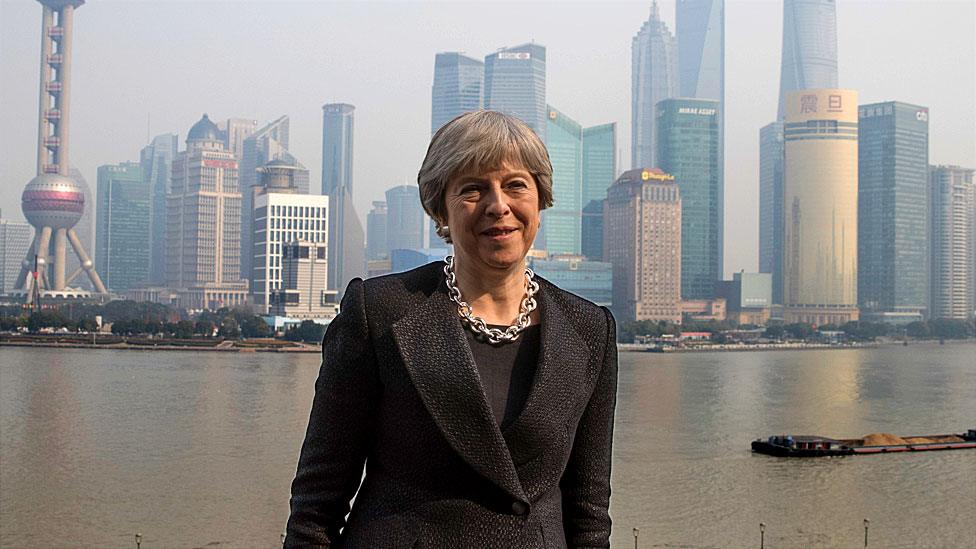Brexit: Customs deal key to 'soft' Irish border
- Published
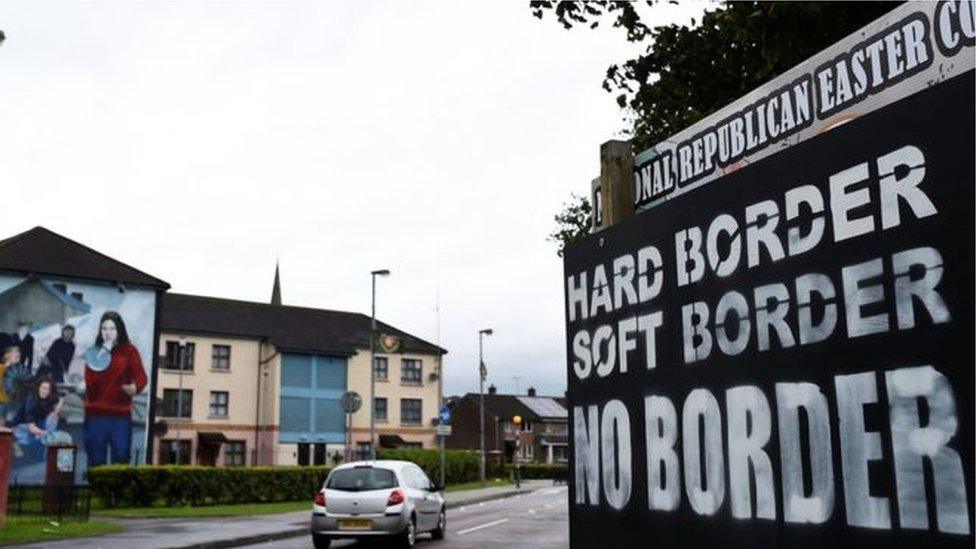
A customs union would go a long way to ensuring the Irish border remains "soft"
It has always been the hope of the Irish government that the UK would stay in a customs union with the EU.
It would go a long way - though not all the way - to ensuring the Irish border remains "soft."
A customs union means tariff free trade between participating countries, removing the need for customs checks between its members.
Hope has persisted.
This is despite the fact that it is more than a year since the Prime Minister said the UK did not want a full customs union.
The issue had not yet reached "its centre of political gravity" an Irish source told me late last year.
That point now appears to have been reached - Downing Street says the UK will not be a member of a customs union with the EU.
But the Irish government can still point to the commitments that the UK made in the phase one Brexit agreement in December.
The UK government guaranteed that there would be no hard border and said it was committed to protecting North-South cooperation.
It hopes to do this in the context of a wider deal or else with specific solution for Northern Ireland.
It agreed that if all else fails, it will still maintain full alignment with the rules of the customs union and the single market which support North-South cooperation, the all island economy and the Good Friday Agreement.
How leaving a customs union, yet still aligning with some of its rules, would work in practice is yet to be fully explained.
We can look at what the UK said about possible customs arrangements in its Northern Ireland position paper which was published in August.
It pointed to a number of examples of where the EU has set aside regulations set out in EU law in order to recognise the circumstances of certain border areas
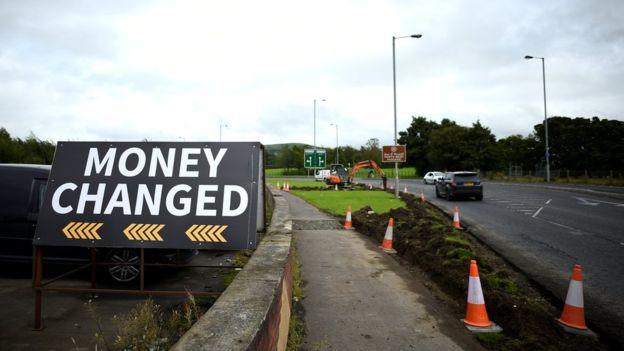
Finding a solution for the Irish border issue is one of the most sensitive in the Brexit talks
It proposed a potential approach where small traders could continue to operate exactly as they do now, with no new requirements in relation to customs processes.
This proposal could be difficult to square with the EU's aim to protect the integrity of its customs union.
For larger traders "trusted trader" status was seen as a partial solution, allowing for simplified customs procedures.
The UK government also said the Irish border should be seen in the context of two potential options for future long-term customs operations.
A "partnership" arrangement would see the UK "align precisely" with the EU in terms of imports and exports, removing the need for any customs checks between the two.
In that model, the UK would continue to operate its own checks on goods coming from outside the EU - and safeguards would be needed to prevent goods entering the EU that had not complied with its rules.
An alternative scenario, effectively a "technology option" would use a "highly streamlined arrangement" to minimise disruption at ports and airports.
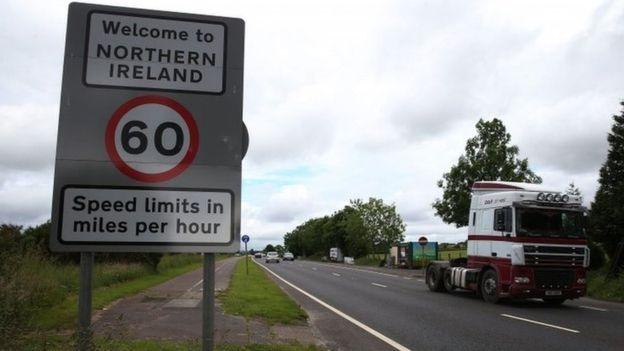
Last week, Phil Hogan said there was an an inevitability about a border on the island of Ireland if the current position of the UK government does not change
This would seek to make the existing system of customs checks "even more efficient", for example using number plate recognition technology at ports.
All this is viewed sceptically in Brussels.
Last week, Ireland's EU Commissioner Phil Hogan said: "There is an inevitability about a border on the island of Ireland if the current position of the UK government does not change."
- Published1 February 2018
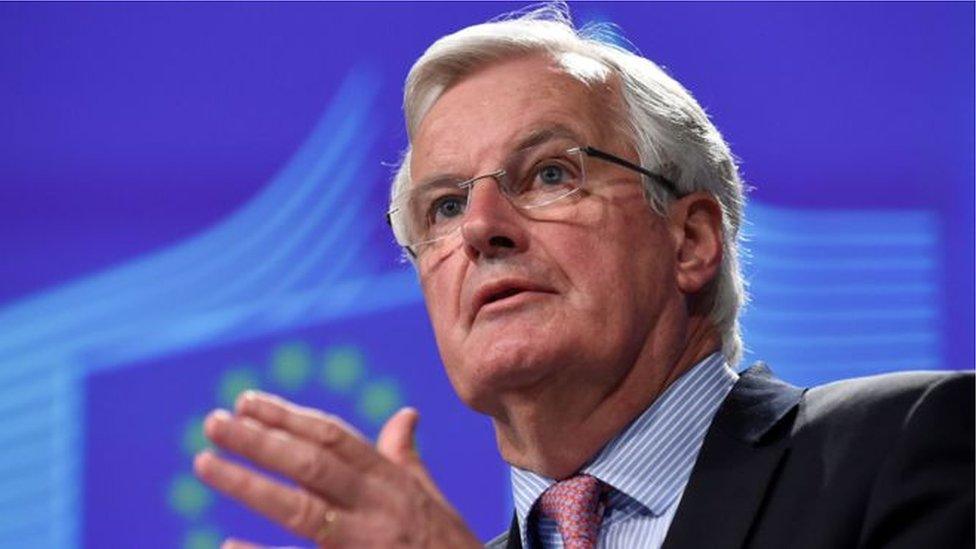
- Published23 January 2018
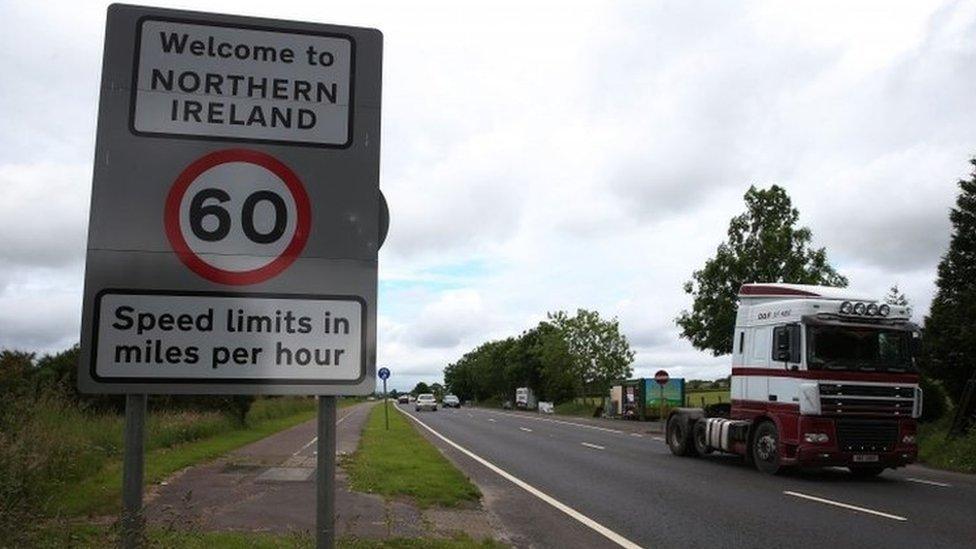
- Published30 December 2020

- Published5 February 2018
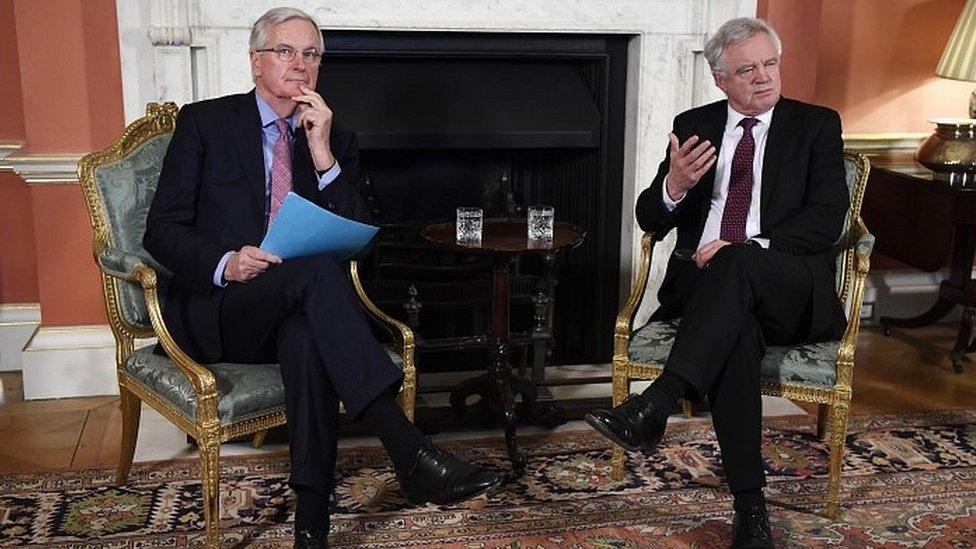
- Published4 February 2018
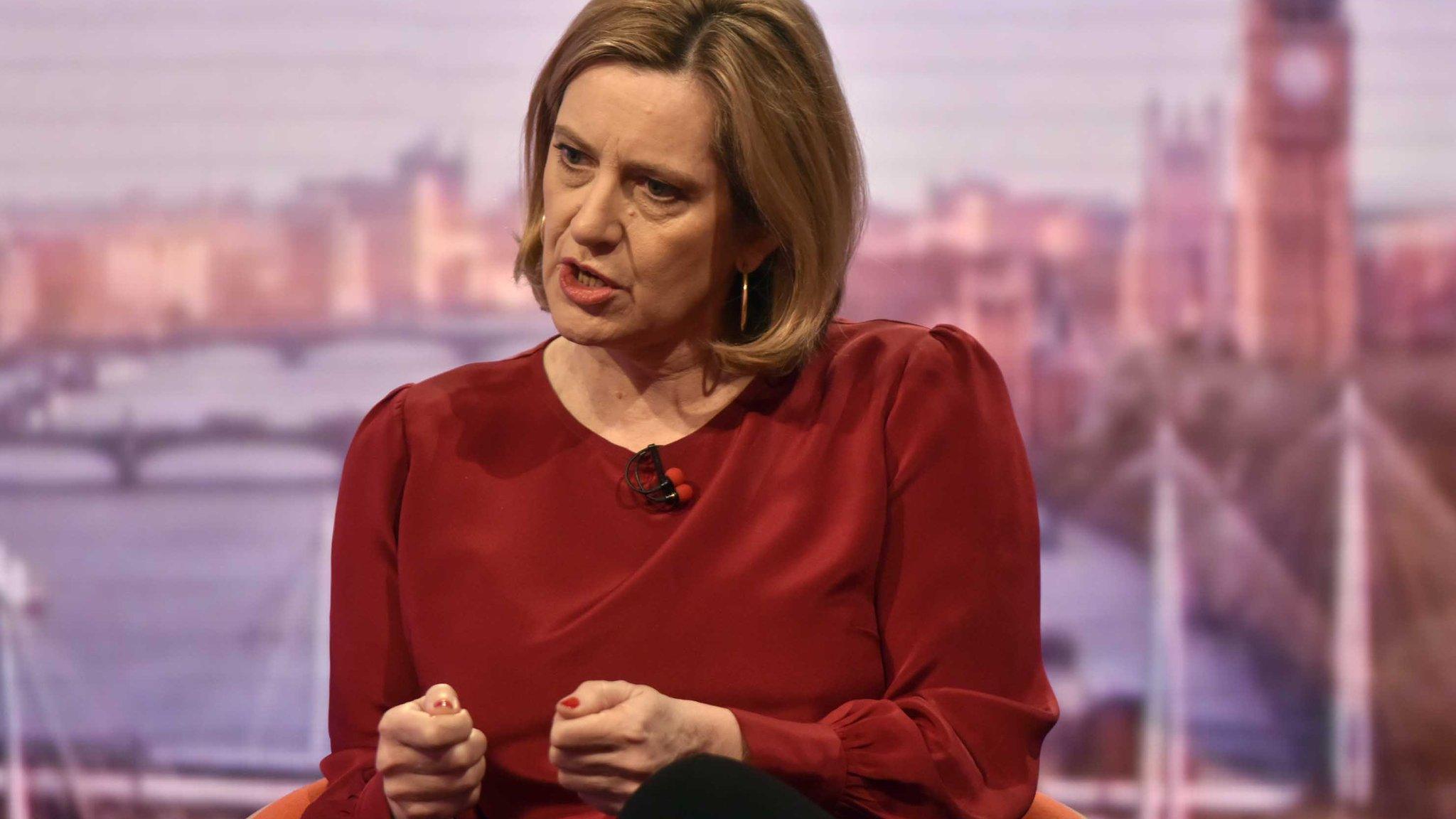
- Published6 November 2017
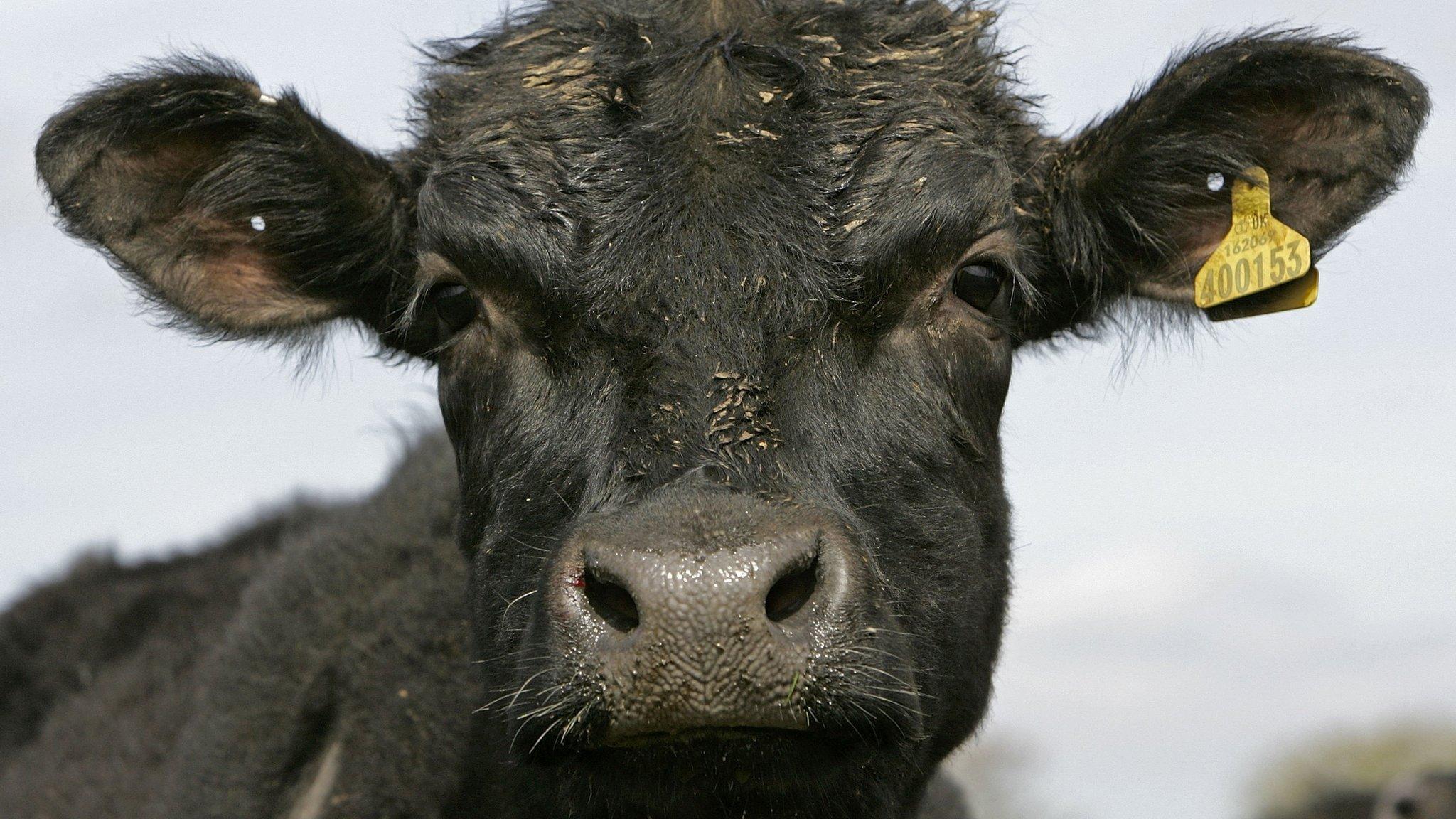
- Published2 February 2018
